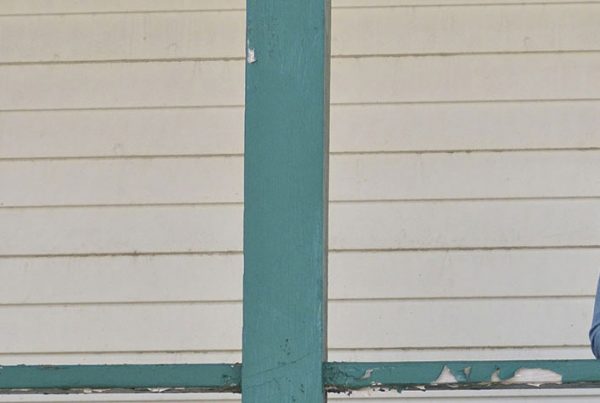If you were to ask any of my friends–or any of my family members, for that matter–what my dissertation is about, you would get a lot of different answers that run the gamut of,
“Ummm, I think it’s about education?”
“Is it about women in seminary, maybe?”
“I think she said something about women and leadership.”
“I have no idea.”
That’s what is really weird about being a doctoral student. I’ve given 4 years of my life to this degree, and most of my friends still don’t know what I’m doing. It’s not because they’re bad friends, but because they have no point of reference–for the topic or the process.
Honestly, that doesn’t bother me at all. It’s not a reflection of their care for me or their respect for my work. Dissertation research is often very obscure and difficult to connect with, and I get that.
What I do struggle with is feeling invisible. During this season, God has called me to work on a project that most people will never see. The audience that I am most burdened to reach and be known by–the average woman in the pew–will never read my dissertation.
For me, this is a hard pill to swallow, especially as I watch friend after friend land book deals. Maybe I could be doing that too, I lament.
I’ve spent a lot of time thinking about this call into obscurity, how my efforts feel invisible to people–or at least, to the people that I think matter (that’s a whole other post!)–and God has brought to mind the meandering life of Moses. In some ways, his path is a lot like mine:
Moses started out with a promising career. He was the adopted son of Pharaoh, which granted him access to the best of everything–food, clothing, education, opportunity. He was a rising star, set-up to have instant success.
But that all changed in an instant. In Exodus 2:11-15, Moses kills an Egyptian for beating a Hebrew slave, and he flees Egypt. He leaves the land of opportunity, the land where everyone knows his name, the land where he has it all, and goes to Midian.
And he stays there for 40 years.
We all know the ending of the story, that God calls Moses to set His people free. Thousands of years later, Moses is still remembered as one of the greatest prophets that ever lived.
But you have to wonder what those 40 years were like. I wonder if Moses grieved his former life. I wonder if he was angry with God, if he was embarrassed to have fallen so far, or if he ever despised his new life, thinking it was below him.
Whatever Moses’ emotions, something happened to him during that time. In the obscurity, God crafted a leader, not one who was stately and bold and proud, but one who was humble, aware of his weaknesses, and profoundly dependent on God.
During those 40 years of invisibility, God un-did Moses’ former self. He unmade a worldly leader and formed him into a godly one.
That is the power of invisibility. It makes room for the Spirit to enter in, and it transforms in a way that fame or notoriety never could.
Lately I’ve been reading an incredible book by Dallas Willard called The Spirit of the Disciplines. In it he explains that many Christians live stunted lives because they expect life change without physical change. They expect to become more modest without changing the way they spend. They expect to become more holy without filtering the media they consume. They expect to grow in their faith without reading God’s Word.
In short, they expect God to change their spirits without ever involving their lifestyles.
But Willard argues that God didn’t design us that way. We are embodied people, which means that transformation should involve our bodies. What we do with our bodies matters–the habits we form, the way we spend our time, the things that we see, and the activities we engage in–these all shape us in powerful ways.
That means we shouldn’t expect spiritual transformation if we’re living the same old way. If our physical lives shape our spiritual lives, then we need to make physical change to see spiritual change.
Willard offers a lot of examples of these physical disciplines–fasting, study, confession, solitude, silence–but the one that really hit home was his section on secrecy. He writes,
“In the discipline of secrecy…we abstain from causing our good deeds and qualities to be known. We may even take steps to prevent them from being known, if it doesn’t involve deceit. To help us lose or tame the hunger for fame, justification, or just the mere attention of others, we will often need the help of grace. But as we practice this discipline, we learn to love to be unknown and even to accept misunderstanding without the loss of our peace, joy, or purpose.
“Few things are more important for stabilizing our walk of faith than this discipline. In the practice of secrecy, we experience a continuing relationship with God independent of the opinions of others.“
It’s so easy to see the invisible parts of our lives–the stuff that no one else sees or cares that much about–as a distraction, a waste, or a low priority. Our daily moments seem to have less value without an audience giving them weight. That’s why we thrust so much of our private lives into the light of social media.
But Willard’s words, and the life of Moses, remind us that invisibility is a cocoon, out of which we emerge greatly transformed. We might know the “goodness” of humility on a head level, but it takes secrecy, obscurity, and invisibility for that lesson to be written on our souls.
In our seasons of invisibility, the Holy Spirit enters in. He is shaping us, helping us to care more about His opinion than others, so that whether or not our stories are as grand as Moses’ or as humble as the widow and her mite, it won’t matter. As long as God gets the glory.
That’s why I’m trying to embrace the invisibility. I’ve still got a good bit of dissertation ahead of me, but I’m leaning into it. I don’t want to waste the gift of obscurity by constantly struggling to escape it. Instead, I pray God uses the hidden parts of my life to shape my soul into looking more like Him.
So, what is your cocoon of invisibility? What areas of your life feel hidden or obscure? And what might God be doing through them? What transformation is occurring?
(And in case you’re wondering, my dissertation is about the factors that influence evangelical women to go to seminary, and it’s coming to a digital research database near you!)
Sharon
Sharon






Embracing the invisible is a great way to put it, Sharon. It reminds me of Jesus telling Nicodemus that the Holy Spirit moves like wind we cannot see.
In my own life, the hting people don’t really understand is my job. They would say “Tim’s a judge”, but most have no clue what that means in my day to day judge work. And if their only point of reference is TV shows, then they are really off the mark!
Love this! I also sometimes feel “invisible” because I am an ordained deacon in the Methodist church. People say “what? you’re ordained? why can’t you baptize? when are you getting your “own church”? But that relationship is not about me and other people. It is about my relationship with God and my relationship with the church body. While most of the things I do will be behind the scenes, God will be glorified! I also loved your comment about the physicality (is that a word?) of our faith. How can we expect God to change our hearts when we don’t change our lives? Love it!
Read this earlier this morning. Prayed for your dissertation. I’ve been thinking all day about how I cannot truly understand humility without being humbled, or perseverence without being tested. Seems simple, but for an enneagram type 5 like me it’s kind of profound. It takes more than head knowledge to gain experience. Thanks for this!
What a GREAT post. I remember the day you began, so read this with SUCH interest! Bravo!
As a fellow mom and PhD student, I really appreciated this post. Although being a mom is invisible, at least other moms can relate. Being a PhD student is obscure, but at last other PhD students can relate. Being a mom and a PhD student is an invisible obscurity that few can relate to. As for your dissertation topic, I’m so glad you are addressing the reality that the decision to go to seminary for a woman is different than for a man. I’ve especially felt the impact of this after becoming a mom. So thank you for investing your life in this topic.
Cindy, solidarity! I’m right there with you–it’s nice to know we’re not all alone in this world. 🙂
And to everyone else, thanks for the comments! Isn’t Dallas Willard the best? I love him!
This is one of the best posts I’ve read Sharon. Thank you.
Sharon, I have been silently stalking you via your blog ever since I made a connection with you and the IF:Gathering via your sister-in-law who working in Burlington at a firm run by a great friend of mine. We also made a much smaller connection upon learning of your time spent at The Summit Church…a place that is dear to our hearts for its ability to speak into College Kids hearts. Just want to shout a measure of encouragement from here in NC…and would love to read your dissertation when it is available. Being invisible is a two edge sword and there are many times that I have felt cheated by it and also embraced it as a needed place of respite. Thanks for sharing your heart.
Thank you for this. I came over from Emily Freeman’s. As one who is terribly uncomfortable with self-promotion but also feels lost in obscurity {relatively speaking}, I appreciate the truth that invisibility can be a sacred and sanctifying place.
I found your blog via a link to this post that someone shared on thers!
Thank you for your words and your example! I never thought of Moses that way before…but, I needed to!
Keep writing and actually, I am excited to read your disertation when you’re finished!
ps I am commenting from an iPad…Excuse the typos, please!
Hello Sharon,
I have come via Emily at chatting@thesky. Just thought I’d mention that Eugene Peterson’s “The Pastor” is a wonderful reflection on more than thirty years of (mostly obscure) small town church ministry if you feel inclined to explore this idea further.
After 3 years of being in grad school, I have come to appreciate research! So I can’t wait to read your dissertation. I’m not sure if it will be in the research databases I have access too, but hopefully. This might be my favorite quote from this entry: “It’s so easy to see the invisible parts of our lives–the stuff that no one else sees or cares that much about–as a distraction, a waste, or a low priority. Our daily moments seem to have less value without an audience giving them weight. That’s why we thrust so much of our private lives into the light of social media.”
That is so true! And something I have been realizing lately is that our generation feels like every moment should be purposeful and exciting–I know that I try to escape the mundane. Your blog reminded me of all the Lord does, working in our hearts in the midst of the very ordinary, very mundane tasks.
P.S. Have you read Extravagant Grace? I would love your perspective.